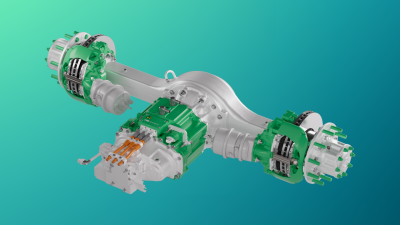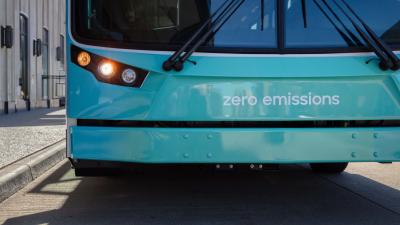Fuel Cells
Fuel cell technology powers clean hydrogen ferry in California
The hydrogen ferry is outfitted with a 360kW Accelera fuel cell system.
Accelera™ by Cummins is revolutionizing the maritime industry by bringing sustainable, zero-emissions technology to the forefront. Its innovative hydrogen fuel cells are set to power North America’s first commercial hydrogen fuel cell passenger ferry, marking a significant milestone in decarbonizing marine transportation.
Set to sail in July 2024 in California, U.S., the Sea Change is a groundbreaking 21-meter, 75-passenger ferry built by All American Marine. This zero-emissions ferry, powered by hydrogen fuel cells, will operate in the San Francisco Bay Area under the ownership of SWITCH Maritime.
Powertrain and performance
The Sea Change features a fuel cell powertrain designed by Golden Gate Zero Emission Marine, powered by 360kW of Accelera fuel cell technology, enabling the ferry to reach speeds up to 22 knots which is equivalent to 25 mph. Hydrogen stored in onboard tanks is converted to electricity, powering the electric motors and propelling the ferry. Its hydrogen fuel cell powertrain offers operational flexibility like diesel engines but with zero emissions and reduced maintenance. The system includes a 100-kWh lithium-ion battery and two 300kW electric propulsion systems, allowing the ferry to operate for two full days before needing refueling.
Proving fuel cell commercial viability
The Sea Change is more than just a ferry; it is a proof of concept for the commercial viability of zero-emissions hydrogen fuel cell marine technologies. Fueling the vessel is straight forward with compressed hydrogen delivered by tanker trucks to the port, eliminating the need for a new fueling infrastructure.
Off-site hydrogen generation plays a crucial role in this process, where hydrogen is produced at central facilities and then transported to the port. This method leverages existing industrial hydrogen production capabilities and distribution networks, making it a more practical and cost-effective solution in the short term. It avoids the significant financial and logistical challenges associated with building new, on-site hydrogen production facilities and specialized fueling stations. By utilizing existing industrial hydrogen generation, ports and marine operators can quickly adopt clean energy technologies without the delay and expense of developing extensive new infrastructure.
Why hydrogen fuel cells
Hydrogen fuel cells offer numerous benefits for marine vessels: they are zero-emissions, silent, scalable, and flexible. In Sea Change, fuel cells are in a room at the back of the main cabin, while hydrogen storage tanks are on the top deck.
In both tall and flat configurations, Accelera’s modular fuel cell technology is designed for easy configuration and adaptability across multiple applications and layouts. The modular architecture allows units to be stacked or connected horizontally, enabling greater power, integration flexibility, and power density.
By adopting a platform development approach, Accelera has enabled iterative technology improvements within similar space claims, reducing customer integration costs between product generations. This purpose-built approach leverages the same core technology across various markets and applications, driving suitable technology improvements, pacing investment, and identifying significant opportunities in building economies of scale - where customers benefit from lowered total investment, improved efficiencies, shortened lead times, and ruggedized fuel cell technology.
Expanding beyond ferries
Looking beyond the ferry itself, there are various applications across the port ecosystem that could benefit from the clean power generated by fuel cells. The list includes terminal tractors and Class 8 fuel-cell-powered drayage trucks for transporting goods from ships to warehouses, even containerized hydrogen fuel cell generator systems for both stationary and portable port power.
Accelera is also a pioneer in hydrogen fuel cell technology on land with innovative projects such as the H2Rescue emergency rescue truck and the first fuel cell passenger train passenger train in North America, launched in 2023. These groundbreaking initiatives underscore Accelera's commitment to advancing clean energy solutions across multiple transportation sectors, driving a sustainable future both on land and at sea
Building hydrogen infrastructure
As the demand for hydrogen fuel cells grows in maritime, the marine sector will become a major consumer of hydrogen, helping expedite increased capacity in hydrogen production and fueling infrastructure at ports. Electrolyzer systems and 'bunker barges' can be retrofitted with hydrogen storage tanks to deliver fuel to vessels in need of refueling.
The Sea Change is a pivotal advancement in maritime technology, passing hybrid and electric solutions to achieve zero emissions out of the gates. With only water and vapor as its output, this ferry is the future of sustainable marine transportation, and Accelera is leading the charge, proving that decarbonizing the world’s hardest-working industries is not only possible but already underway.

